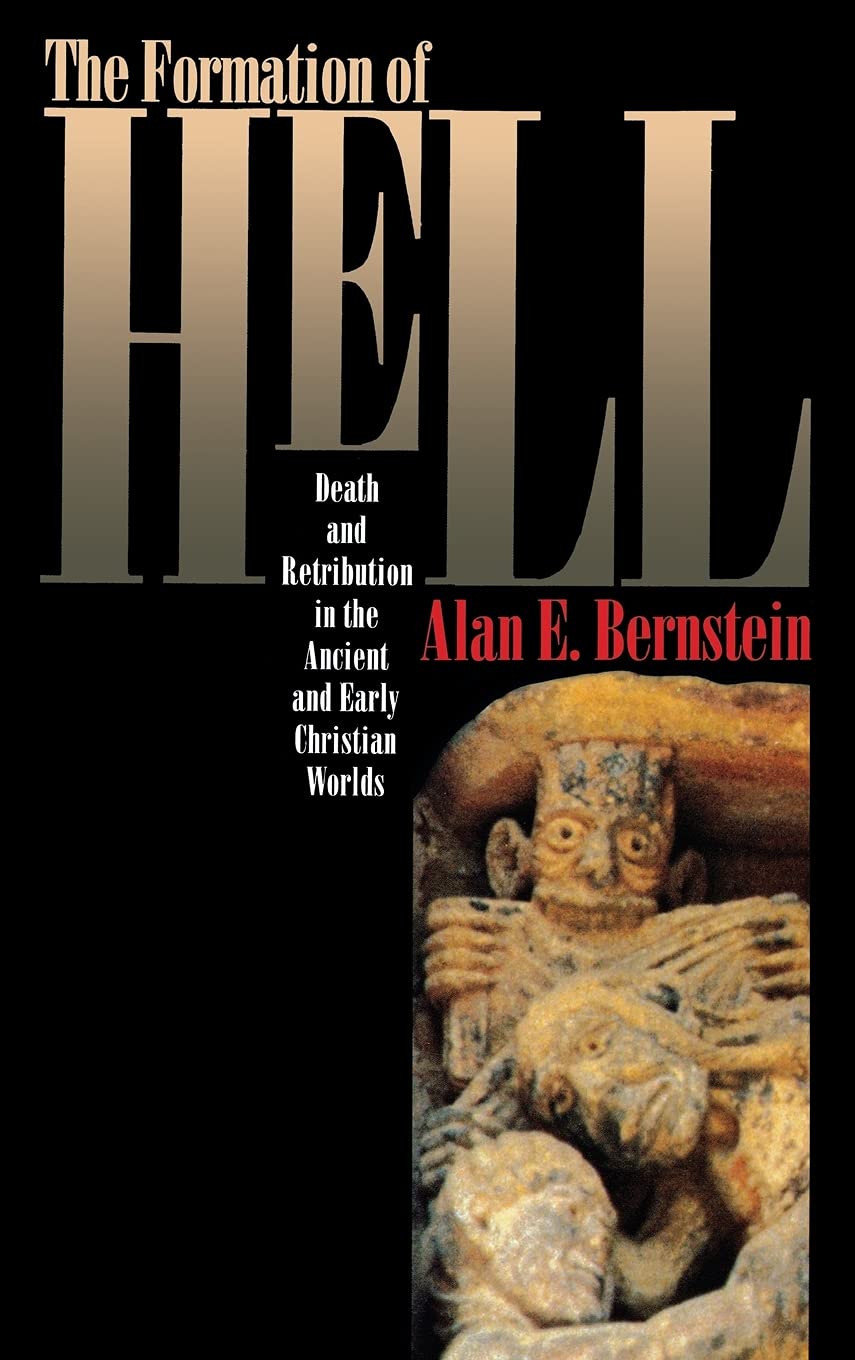Cornell University Press
Formation of Hell: Death and Retribution in the Ancient and Early Christian Worlds
Regular price
$7.95 USD
Regular price
Sale price
$7.95 USD
Unit price
per
Shipping calculated at checkout.
Couldn't load pickup availability
Title: Formation of Hell: Death and Retribution in the Ancient and Early Christian Worlds
Author: Alan E Bernstein
Religion & Spirituality: 1700319
ISBN: 9780801428937
Publisher: Cornell University Press
Published: 1993
Binding: Hardcover
Language: English
Edition: First Edition
Number of Pages: 408
Section: Religion | Christian Theology | General
Condition Note: Excellent, unmarked copy with little wear and tight binding. We ship in recyclable American-made mailers. 100% money-back guarantee on all orders.
Publisher Description: What becomes of the wicked? Hell - exile from God, subjection to fire, worms, and darkness - for centuries the idea has shaped the dread of malefactors, the solace of victims, and the deterrence of believers. Although we may associate the notion of hell with Christian beliefs, its gradual emergence depended on conflicting notions that pervaded the Mediterranean world more than a millennium before the birth of Christ: Asking just why and how belief in hell arose, Alan E. Bernstein takes us back to those times and offers us a comparative view of the philosophy, poetry, folklore, myth, and theology of that formative age. Bernstein draws on sources from ancient Egypt, Mesopotamia, Greece, Rome, and Israel, as well as early Christian writings through Augustine, in order to reconstruct the story of the prophets, priests, poets, and charismatic leaders who fashioned concepts of hell from an array of perspectives on death and justice. The author traces hell's formation through close readings of works including the epics of Homer and Virgil, the satires of Lucian, the dialogues of Plato and Plutarch, the legends of Enoch, the confessions of the Psalms, the prophecies of Isaiah, Ezekiel, and Daniel, and the parables of Jesus. Re-enacting lively debates about the nature of hell which were argued among the common people and the elites of diverse religious traditions, he provides new insight into the social implications and the psychological consequences of different visions of the afterlife.

